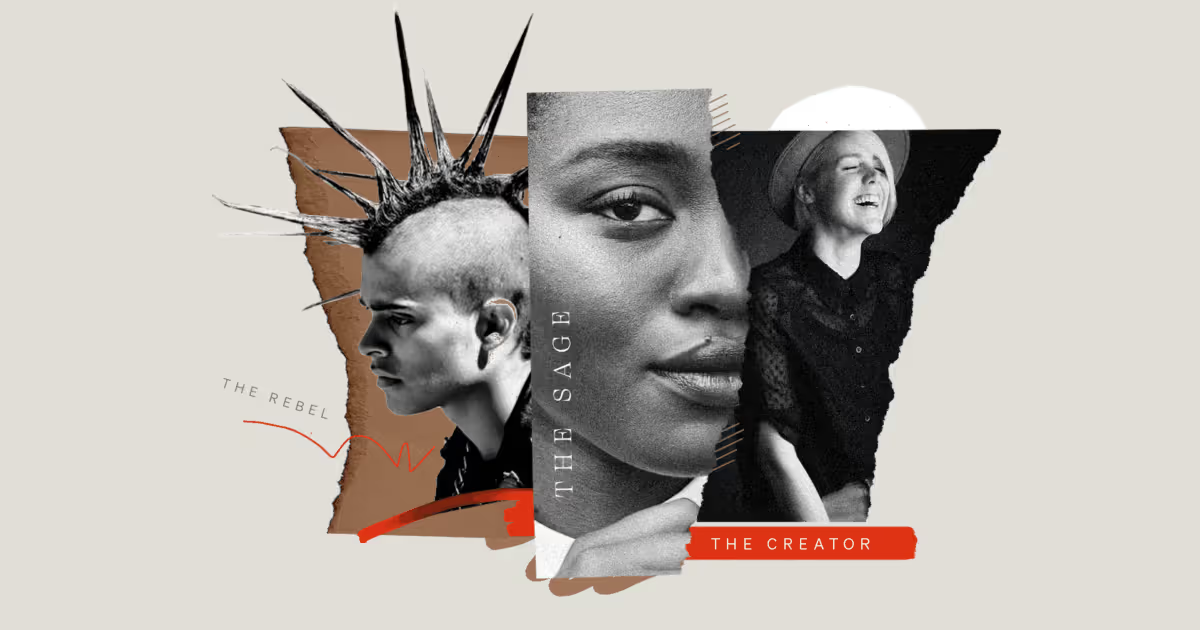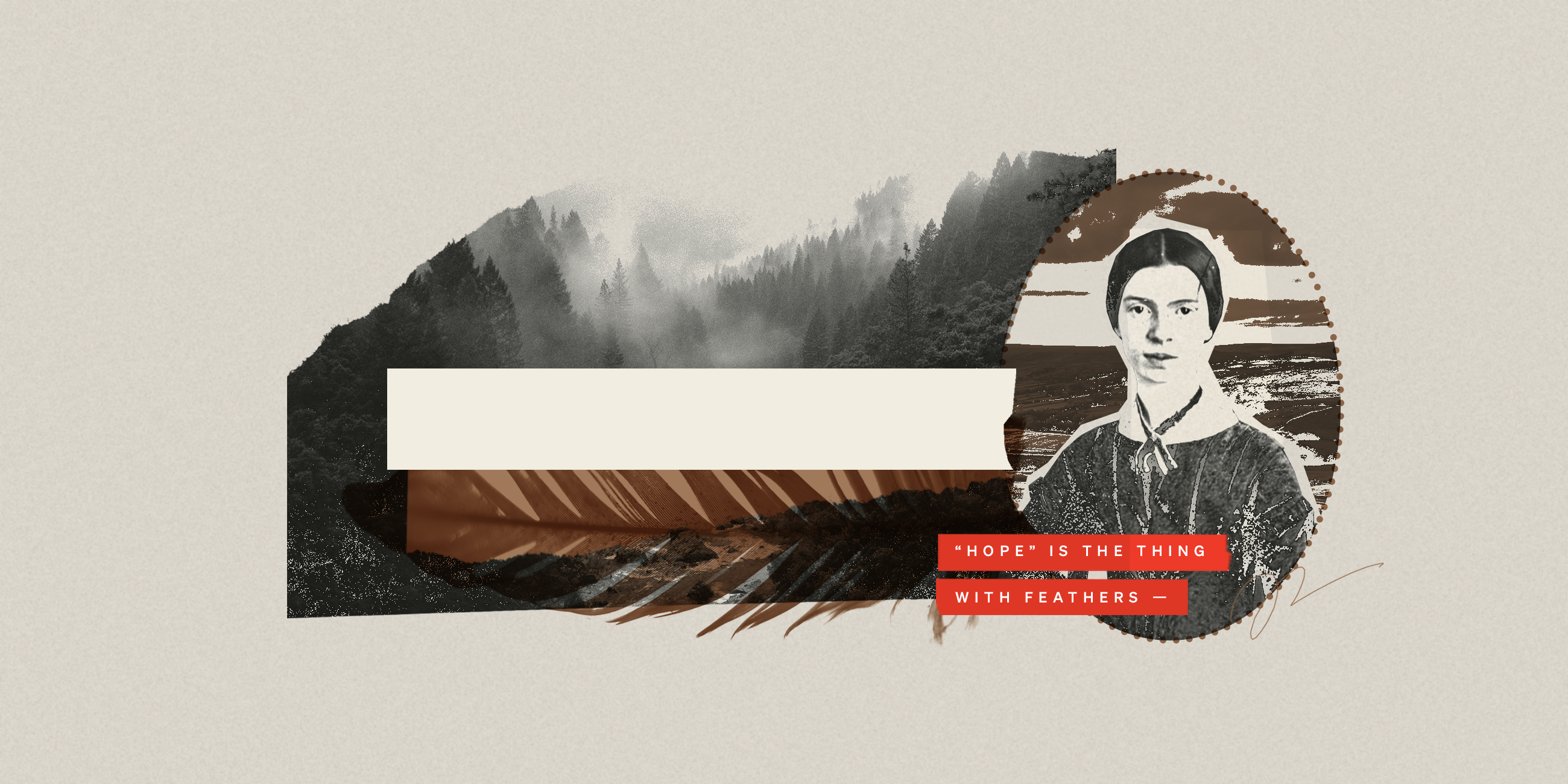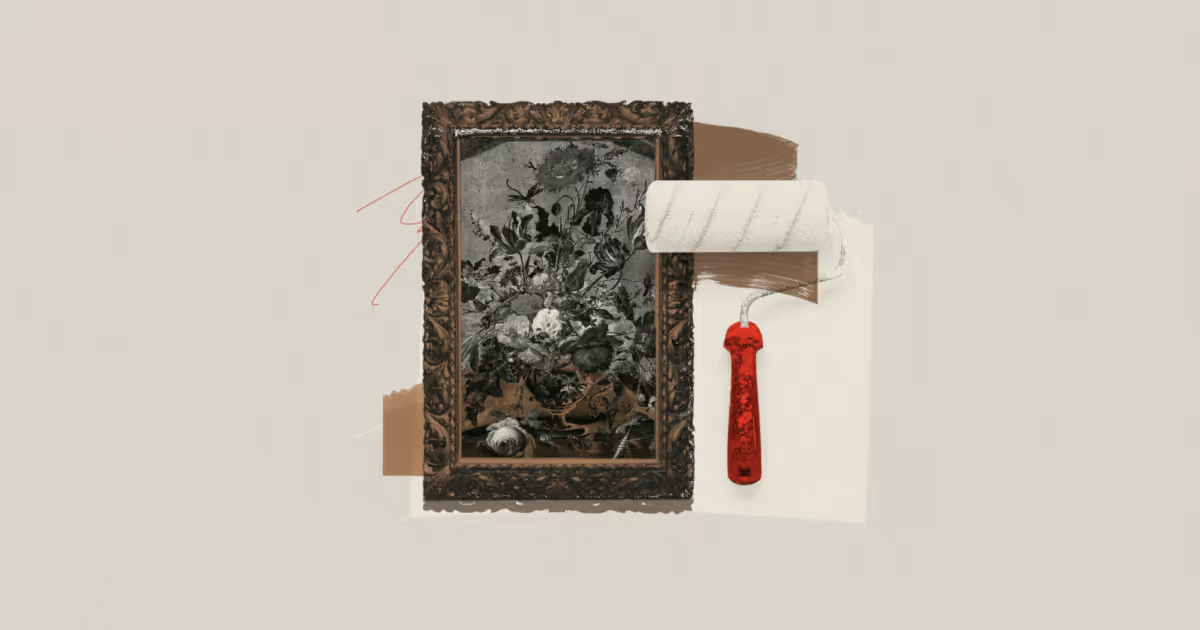You came here to learn about brand archetypes, and while I promise we’ll get there, I want to start by sharing a story about my day.
An audio version of this article is available on our podcast, Focus on Brand.
There’s an ongoing and never-ending conversation that happens in my household.
It goes like this:
“What do you feel like watching tonight?”
“I don’t know. What do you feel like watching?”
“I don’t know.”
{{divider}}
Early on in the pandemic, shows like “Tiger King” felt like escapism. But that phase has passed us, and now we find ourselves drawn to cherished reruns.
So, we’re rewatching. Classic movies, sitcoms that wrapped a decade ago, and a little bit of Bob Ross. Anything we can quote entire scenes from or tie to a pastime. Sometimes you want to go “where everybody knows your name” and when I hear the starting notes of the “Cheers” theme song, something in me takes a big sigh of relief. These reruns share with us the familiar comfort and connection we need to get by these days.
{{divider}}
What does this have to do with brand archetypes? More than you’d think. Archetypes are a standard set of human constructs, developed by psychologist Carl Jung. They are not confined by language, culture, time, or gender — instead an iconic narrative representing a prevailing experience. They’re complete too, going so far as to comprise behaviors, strengths, motivations, and even vulnerabilities. And they’re used in everything from psychology to screenwriting.
Not only will you recognize the archetypes, they will speak to you. Because archetypes embody universal stories that we all share as humans: the Hero, the Outlaw, the Lover…
Welcome To the Brand World
For brands, Archetypes are a tool of understanding, offering a more human way of being in business and a chance to show people exactly who you are. The right archetype can give a company a way to prove its existence to the world, developing relations to society and becoming part of it. Your brand archetype will demonstrate an example, characteristics, and a model that has lived the life your brand wants to live. This can inspire and influence both verbal and visual sides of a brand’s identity, personifying the future and trajectory of your company. In addition, Brand Archetypes can resolve brand inconsistencies through focus and an inherent system of management.
Think about some of the most memorable brands in the world.
- Disney introduces us to new worlds and invites us to imagine. It is The Creator.
- Patagonia rejects boredom and insists on bravery and freedom to find new horizons, encouraging everyone to get comfortable being a bit uncomfortable. It is The Explorer.
- The Smithsonian shares wisdom so as to illuminate a path to hidden truths. It is The Sage.
- MTV breaks rules, sees the world and is unsatisfied by its current state. It is The Rebel.
Archetypes in Action
Using archetypes has endless possibilities, but the two most important for a business undergoing a branding project are audience and competitors.
Audience
More than what’s spent and gained, life is about the richness of relationships. And brands that are attuned to those deeper needs do a better job serving their customers. Because in addition to making sense of your own brand, archetypes aid in better understanding who will relate to it. A brand that knows itself strengthens its story, guiding relationships that appeal to consumers on a human level and tap into their needs. By building an emotional bridge to audiences, a brand can create an experience that’s authentic and familiar.
Competitors
Tell the harrowing story of your brand that’s impossible to forget or ignore. Or, use archetypes to understand your category in order to uncover what’s missing, taking hold of differentiation. In this way, a brand archetype has the power to be your greatest competitive advantage. A strong brand presence stands out and leaves an impression, and the story of your brand archetype will answer how to market your value among the cluttered marketplace. As more and more companies are created, it will become increasingly difficult to compete on product alone, but the one thing that can’t be replicated is your brand character.
Right now, brands have an opportunity to stand for something important. As the world looks around for belonging and answers, brands can speak out and help us make sense of it all. And archetypes are a valuable starting place for learning how to articulate who you are in a world where it often feels like we just don’t know.
A focused brand is relatable, lovable, and reliable, just like the cast from our favorite films and TV series. These forged connections are the meaningful things we as consumers search for and are comforted by — today and maybe forever.





